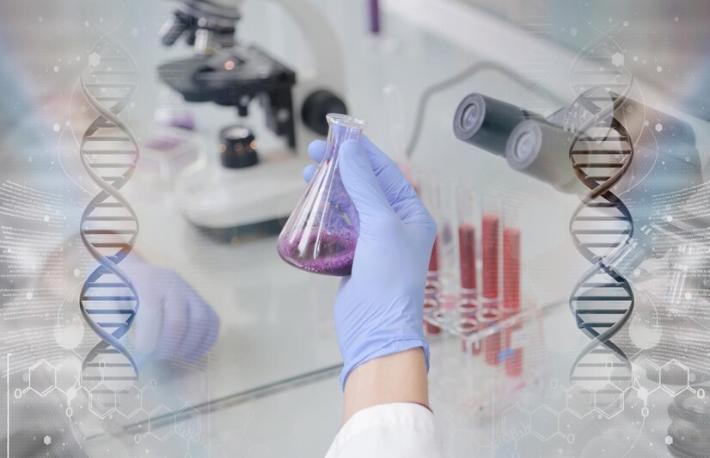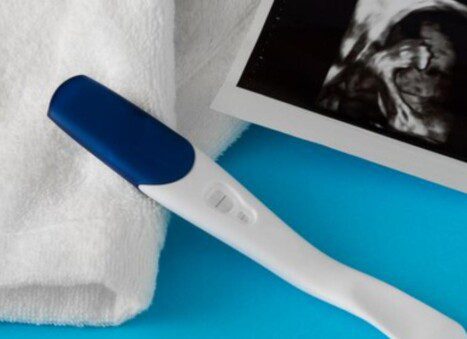
CVS VS Amniocentesis: Which One Is Better For The Health Of The Mother And Baby?
A prenatal paternity test is one of the most important tests that a woman needs to get done while pregnant. The test determines the actual biological father of the child even before it is born. Not only do prenatal pregnancy tests determine the actual biological father of the child, but they also help them determine any genetic traits that the child might be carrying. CVS vs Amniocentesis has been a part of a long ongoing debate. These two, along with the non-invasive prenatal test, together form the three branches of prenatal pregnancy tests.
The reason why these tests are called prenatal is because they are done before the birth of the baby. In certain cases, it becomes important for the mother to determine the biological father of the child. For some they are legal reasons, others for personal.
While a non-invasive prenatal paternity test is the most common one that professionals suggest, CVS vs. Amniocentesis are also equally popular when it comes to their efficiency.
So, which one is better for you? And which one can guarantee accurate results without the
risk of miscarriage? Stay with us till the end of the article to find out!
CVS Vs Amniocentesis: Definition
Before we get to the more intricate parts of these paternity tests, it is important that you have proper understanding of what exactly these tests are.

Chorionic Villus Sampling
Chorionic villus sampling, or CVS, is the type of genetic testing that almost every woman goes through during her pregnancy. This test not only determines the biological father of the child but also checks for certain health conditions like Down syndrome. In some cases, it also confirms the sex of the baby.
In the process of CVS testing, a very small sample of cells is drawn from the placenta of the mother. These cells are known as chorionic villi. They are produced from the fertilized egg. Therefore, they tend to have the exact same genetics as the fetus.
Amniocentesis
Amniocentesis is another popular prenatal test that helps diagnose genetic disorders like spina bifida, Down syndrome, or other health issues in the fetus. A needle is used to draw out a tiny amount of amniotic fluids from the uterus and is tested in the laboratory for specific conditions.
This test is mainly done in the second or the third trimester of pregnancy. It can also detect certain genetic conditions like cystic fibrosis.
At the time of pregnancy, the fetus develops in the amniotic sac. The main job of the amniotic fluid is to surround and protect the growing fetus inside. Hence, it also contains some of the fetal cells. These cells are rich in genetic information that can help determine not only the biological father of the child, but also other genetic conditions.
CVS Vs Amniocentesis: Who Needs It
Both CVS and Amniocentesis have different criteria sets that help to decide the different sets of women who actually need to get it done.
Your doctor will decide the best test depending on your pregnancy. However, here are some information that might help you figure out which is the best test for your body.
Who Needs A CVS Testing?
CVS testing is not a typical part of prenatal care. Your doctor will only ask you to go for this option if you have any abnormalities, or risk factors that were detected on the blood screening or early ultrasounds.
This test can help find out any genetic conditions in the early days of pregnancy. However, it totally depends on you if you want to get this test done.

Doctors usually refer this test if you:
- Have already delivered a child with genetic conditions.
- You are 35 years or older at the time of your due date. The risks of a baby having genetic conditions increase with the age of the mother.
- Did a screening or a test that indicated a high risk of the child having a genetic condition. For instance, the non-invasive prenatal paternity test is done within the 10th and 13th week of pregnancy looks for any fetal DNA present in your blood.
- Come from a family with genetic conditions or your partner does.
Who Needs Amniocentesis?
On the other hand, the healthcare provider might ask you get an amniocentesis test done when:
- Your ultrasound testing indicates any abnormality in the fetus.
- An increased risk chromosome disorder is detected in the prenatal screening test.
- Specific genetic disorders like cystic fibrosis or sickle cell disease runs in your family. Or, if you test positive for being a carrier of any genetic disorder.
- You are 30 or older at the time of your delivery. This mainly happens because women over the age of 35 tend to have a higher chance of delivering a baby with chromosomal disorders.
CVS Vs Amniocentesis: What Do They Test For?
Both CVS and amniocentesis test for different genetic abnormalities in the baby.

What Does CVS Test For?
CVS can help you identify specific genetic disorders, like problems with chromosomes. These cell structures have fetal DNA. CVS might detect if there are any extra or missing chromosomes. It also detects is any of the present chromosomes have major changes in their structures. These chromosomal changes might lead to multiple problems including birth defects.
Conditions that a CVS test can test for include:
- Cystic fibrosis
- Down syndrome
- Tay-Sachs disease
- Sickle cell disease
- Trisomy 18, or the Edward syndrome
What Does Amniocentesis Test For?
The amniocentesis test might help detect chromosomal, congenital disabilities, or chromosomal disorders. These conditions might include:
- Tay-Sachs syndrome
- Down syndrome
- Neural tube defects like anencephaly or spina bifida
This test might also evaluate:
Fetal lung development: This is important if you need to deliver the baby sooner than the due date to protect your and your baby’s health.
Rh disease: This is possibly a serious condition where the fetus and mother have dissimilar blood Rh types.
Amniocentesis sometimes is also used to treat polyhydramnios – a condition where the mother might have too much amniotic fluid. Amniocentesis is then used to remove the excess fluid from the amniotic sac.
CVS Vs Amniocentesis: The Process
Here are the processes that are followed to perform CVS and Amniocentesis on pregnant women.

CVS
CVS testing is not at all a painful process. However, there is a slight chance that you might feel some degree of discomfort. There are mainly two ways in which your healthcare provider will perform this test on you:
Transcervical: In this process, the doctor will insert a speculum into your vagina. It is a smooth device that has the shape of a duck’s bill and is used for other purposes like Pap tests. It helps in widening the walls of your vagina. Then, the doctor inserts a very thin, plastic tube in your cervix. With the guidance of the ultrasound, the doctor moves the tube right to the placenta and draws out a very small sample of your villi.
Transabdominal: This process is once again guided by ultrasound. Here, the doctor removes a thin needle right through your abdomen to the placenta to remove some of the cells. This process is a lot similar to a regular amniocentesis. If your doctor uses this method, this might give you a local anaesthesia to reduce any pain that you might go through.
Amniocentesis
To conduct the process of Amniocentesis, your doctor will:
- Clean a small patch on your stomach with an antiseptic to kill any germs present.
- Apply a special gel on your whole stomach.
- Moves the ultrasound wand over the gel to get the ultrasound images of the fetus on the monitor screen.
- Insert a hollow, thin needle through the abdomen and uterus in the amniotic sac, but far away from the fetus.
- Remove a very small amount of fluid with the help of the needle
- Remove the needle from your abdomen
- Monitor and heartbeat the heartbeat of the feus on the ultrasound to make sure none of the both were affected by the process.
Once the procedure is done, the doctor will then send the sample to the laboratory. The lab takes out the fetal cells from the amniotic fluid and then goes on to analyze the cells. The cells grow for many days in the lab before getting tested for genetic conditions or defects in the neural tube. It takes around two days for the entire test result to come back to the mother.
CVS Vs Amniocentesis: Risks
Both CVS vs Amniocentesis are highly exposed to risks. While most of these tests are safe, there is always a tiny risk of them hurting the mother and the fetus.

Let’s now go through the risk factors associating to both the prenatal tests.
Risks Of CVS Testing
The risk of CVS causing a miscarriage is just the same as it is in Amniocentesis. However, the risk ratio remains 1/300 to 1/500. So, you can be assured that miscarriage is not something that you are likely to face during CVS testing.
However, one thing that you need to be concerned about is infection. And in some rare cases, limb deformity in infants happens as a result of CVS testing. That being there, most cases of limb deformity because of CVS happen when the test happens before the 10th week of pregnancy.
Risks Of Amniocentesis
Most procedures of Amniocentesis are safe. The risk of miscarriage in both CVS and Amniocentesis is the same. However, there are a few serious health risks that Amniocentesis might have for both the mother and the fetus.
These complications are:
- Leaking of the amniotic fluid or bleeding
- Cramping
- Infection or injury
- Premature labor
- Loss of pregnancy
Complications occurring from Amniocentesis are very rare. Less than 1 percent of cases have reported a miscarriage or early pregnancy due to the procedure. Only 2 percent of people experience spotting or cramping afterward.
It is best to talk with our doctor before deciding which test to take.
CVS Vs Amniocentesis: Which Is Better

For some women, Amniocentesis is better in comparison to chorionic villus sampling. An amniocentesis test is a requirement if you already had a baby with any neural tube defect such as spina bifida. It is also necessary if your partner has a prominent neural tube defect.
Amniocentesis might be a better option if your other test results did not come up as normal. On the other hand, CVS may be better if both you and your doctor wish to know the test results within the first three months of your pregnancy.
CVS Vs Amniocentesis: Frequently Asked Questions
During the process of CVS, the doctor inserts a thin needle either through the cervix or the abdomen of the mother into her placenta to draw a small amount of villi for testing.
In this process, the doctor inserts a thin needle from the abdomen in the amniotic sac to get a little sample of the amniotic fluid surrounding the fetus.
Risks in both CVS and Amniocentesis remain considerably low. While there are miscarriage risks associated with both processes, the ratio is 1/300 to 1/500. However, if you are doing either of the tests, make sure to:
· Rest for at least 24 hours, and do not take part in any heavy lifting or hardcore exercises.
· Refrain from having sex for 72 hours.
· Look out for any signs of infection like cramps, fever, or vaginal bleeding.
The Bottom Line
CVS vs Amniocentesis is done on patients to find out different conditions relating to their pregnancy. Chorionic villus sampling, or CVS, is done to find out if the fetus has any genetic disorders. Amniocentesis, on the other hand provides valuable information about the fetal health.
The risks in both the tests remain the same. However, the degree of risk remains consistently low for you to worry about. While the risk of a miscarriage is 1 in 300 women, the chances for infection are less than 2 percent.
Both these tests have their own benefits and criteria, depending on which your doctor will suggest these tests to you. But CVS or Amniocentesis is only a requirement when there are any abnormalities found in the early pregnancy tests like a non-invasive paternity test or the ultrasound.
ADDITIONAL READING:
Already have an account?
Sign In
Create your account
User added successfully. Log in








